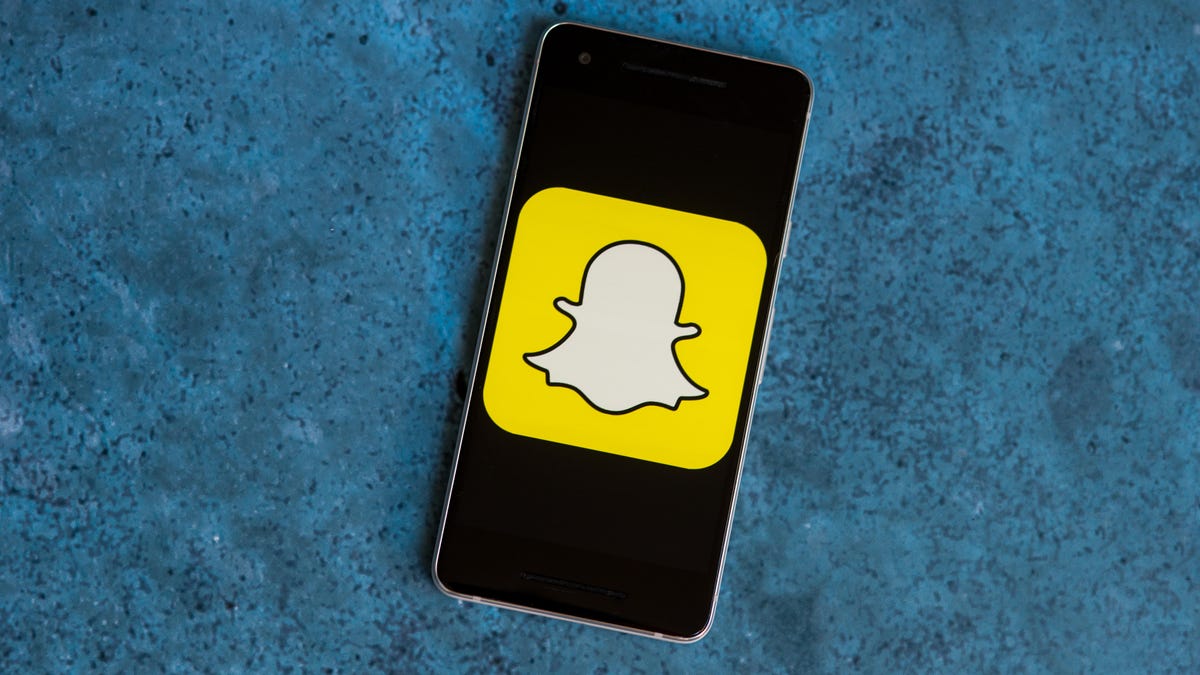Snap's head of diversity apologizes for Juneteenth filter
In a memo to employees, Oona King says the company "failed to recognize the gravity of the 'smile' trigger."

Snap last week removed a Juneteenth filter from its Snapchat app after some on social media called the filter tone-deaf. The filter, which featured a pan-African flag and the message "Juneteeth Freedom Day," prompted users to smile to break chains.
Digital strategist and former journalist Mark Luckie posted a video to Twitter on Friday that shows the Snapchat filter (also known as a Lens) in action. Luckie, who's Black, said the filter was, "um...interesting."
"Smile to break the chains?" he wrote. "Okay then."
This SnapChat #Juneteenth filter is...um...interesting.
— Mark S. Luckie (@marksluckie) June 19, 2020
Smile to break the chains? Okay then. pic.twitter.com/Wyob3kT3ew
Several people commented on Luckie's tweet, calling the filter tone-deaf and criticizing Snap.
The company apologized Friday and said it's taking steps to avoid making similar mistakes in the future.
"We deeply apologize to the members of the Snapchat community who found this Lens offensive," a Snap spokesperson told CNET. "A diverse group of Snap team members were involved in developing the concept, but a version of the Lens that went live for Snapchatters this morning had not been approved through our review process. We are investigating why this mistake occurred so that we can avoid it in the future."
An internal email sent to Snapchat employees from head of diversity, Oona King, revealed insight into the company's Juneteenth filter development.
"Speaking on behalf of my team, clearly we failed to recognize the gravity of the 'smile' trigger," wrote King in the email, published by The Verge on Sunday. "We reviewed the Lens from the standpoint of Black creative content, made by and for Black people, so did not adequately consider how it would look when used by non-Black members of our community."
King said the Snapchat team felt it was acceptable for Black people to celebrate the end of slavery as many do with Juneteenth picnics, BBQs and parties across the US. "However for a White person to tell a Black person: 'Smile! You're no longer slaves' is offensive in the extreme," wrote King.
"I'm hoping many people will understand how the same word can be appropriate in one context, but inappropriate in another, depending on who is using it," wrote King. "Regardless, we should not have used smiling as a trigger to break the chains of slavery in the Lens, and we understand why that was offensive."
A Snapchat spokesperson confirmed that King's email was sent to staff.
Juneteenth celebrates the end of slavery in the US. Also known as Freedom Day or Jubilee Day, it's a recognized holiday in 47 states. Major companies like Spotify, Twitter and Lyft have recently added Juneteenth to their calendars for the first time.
Snap has faced criticism for its filters in the past. In 2017, the company's International Women's day filter of the Nobel prize-winning chemist Marie Curie featured long eyelashes and smoky eyeliner along with beakers and test tubes. People on social media called the full face of makeup unnecessary, and both historically and scientifically inaccurate. In 2016, the company got into trouble over its Bob Marley filter, which let people combine features of the late singer's face with features of their own -- which critics said amounted to digital blackface.
CNBC earlier reported that Snap had pulled the Juneteenth filter.

